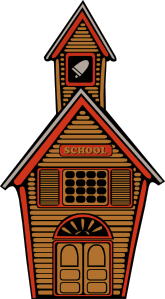What Is Education?
Yesterday I overheard someone at my local coffee shop talking about his education. He began to rattle off the schools he attended and the degree and certifications he holds. Never did he actually mention what he knew, what skills he possessed or what experience he had with any particular domain of knowledge. No, he made the mistake so many people make. He equated education with diplomas, degrees and certifications. They are not the same.
Education is whatever knowledge, experience and skill you possess regardless of how they were attained. Hopefully an education ultimately brings about some semblance of wisdom as well. It has no inherent connection to how you learned what you know. Your education might result from formal schooling, reading, your profession, volunteer work, personal projects, casual interactions, media or discussions with others. Gaining an education happens constantly throughout our lives if we open up to the educational possibilities. There are as many approaches to learning as there are people.
It’s risky to equate education with schooling. Education is the goal. Formal schooling is but one of many methods by which that goal might be attained. Obviously I’m a proponent of carving out your own path to an education that’s meaningful to you. Education is what’s important, not how we get it. If we focus on the process and not the desired outcome, we become easy prey to schools and training organizations that care more about churning out graduates than they do in facilitating a quality education. That’s not a recipe for an educated society.

Lincoln Calcavecchi
January 22, 2013 at 3:52 pmI was talking about this very thing today in my critical thinking class to adults who work in government. A participant asked me what she was supposed to learn. I told her whatever she wanted to learn, because I was unable to force her to learn. I could only share information with her, hopefully in a structure she could relate to and then live in. I then told another participant the only way for me to know if he learned anything from my class was if he demonstrated somehow. This is the learning result: demonstration. One can have all kinds of information and knowledge poured into his or her head, and can come out of an institution with flawless grades, but that doesn’t mean one is educated. Yes, I accept your premise, Race. Having an education, getting those diplomas and advanced degrees does not mean a person is educated. It only means the individual has curated his or her resume.
Stephen Reyes
January 23, 2013 at 5:27 pmOne of my favorite quotes, attributed to Mark Twain – “I have never let my schooling interfere with my education.”
What is Education? ← Learning Empowered
January 23, 2013 at 5:39 pm[…] is a nice post from my friend, Race Bannon, titled “What is Education?“. It reminded me that we have a lot of work to do in altering our current paradigms and views […]
ELIZABETH ANYANWU
April 10, 2013 at 12:52 amI strongly agree with Race because through assessment and interactions with some university graduates, one would expect far greater expertise and skills in the subject area that the graduate studied in school than a person without a formal education in that subject area. But at times the reverse is the case, you find a person with a non formal education performing better than one with a formal education in his or her area of study. The purpose of education is to change our environment positively and not just to pile up certificates and awards. I therefore believe that if with informal education one can change our environment positively, then that person should be accorded with the same respect and honor as the person with a formal education?
ELIZABETH ANYANWU
April 10, 2013 at 12:56 amI strongly agree with Race because through assessment and interactions with some university graduates, one would expect far greater expertise and skills in the subject area that the graduate studied in school than a person without a formal education in that subject area. But at times the reverse is the case, you find a person with a non formal education performing better than one with a formal education in his or her area of study. The purpose of education is to change our environment positively and not just to pile up certificates and awards. I therefore believe that if with informal education one can change our environment positively, then that person should be accorded with the same respect and honor as the person with a formal education.